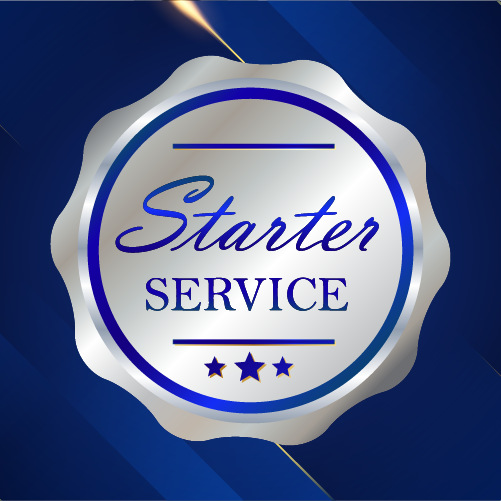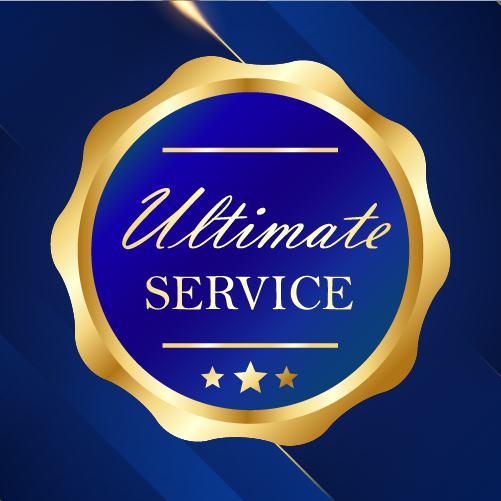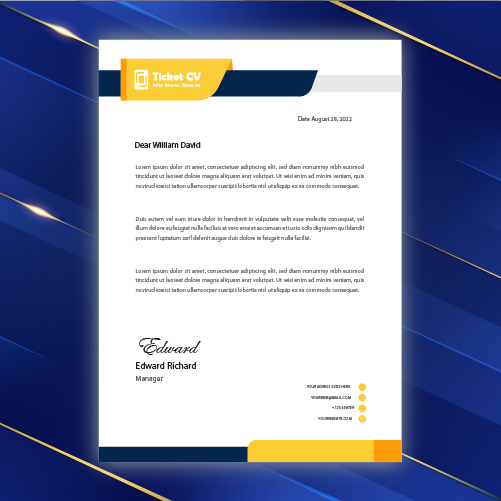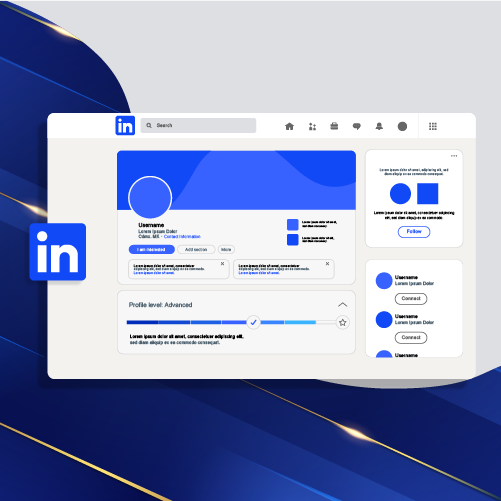- Understanding Interview Dress Codes
- Varying Dress Codes
- First Impressions Matter
- Business Casual vs. Formal Interview Attire
- Different Expectations
- Making the Right Impression
- The Role of Company Culture in Choosing Interview Outfits
- Reflecting Company Values
- Adapting Attire Choices
- Pros and Cons of Wearing Jeans to Interviews
- Casual and Approachable Image
- Perceived Unprofessionalism
- When Jeans Are Acceptable for Interviews
- Researching Company Culture
- Making an Informed Decision
- Dressing for Success: Beyond the Jeans Dilemma
- Company’s Image
- Accessories and Grooming
- Outfit Confidence
- Gender-Neutral Guidelines for Interview Attire
- Promoting Equality
- Professionalism Over Gender-Specific Attire
- Ensuring Comfort and Confidence in Your Interview Outfit
- Impact of Comfort on Confidence
- Balancing Comfort and Professionalism
- Avoiding Common Mistakes with Jeans at Interviews
- Avoiding Overly Distressed or Embellished Jeans
- Mindful Fit and Cleanliness
- Closing Thoughts
- Frequently Asked Questions
- Are jeans considered appropriate for an interview?
- What is the significance of understanding interview dress codes?
- When are jeans considered acceptable attire for interviews?
- How can one ensure comfort and confidence in their interview outfit?
- Why should individuals avoid common mistakes when wearing jeans to interviews?
Are jeans appropriate for an interview? This question often perplexes job seekers. The choice of attire significantly impacts first impressions during interviews. Understanding the dress code expectations can be crucial in making a positive initial impact on potential employers.
In today’s diverse work environments, traditional dress codes are evolving. However, it’s essential to strike a balance between personal style and professional presentation when choosing interview attire. Let’s delve into the nuances of dressing for success in interviews and unravel the appropriateness of jeans as part of your interview outfit.
Understanding Interview Dress Codes
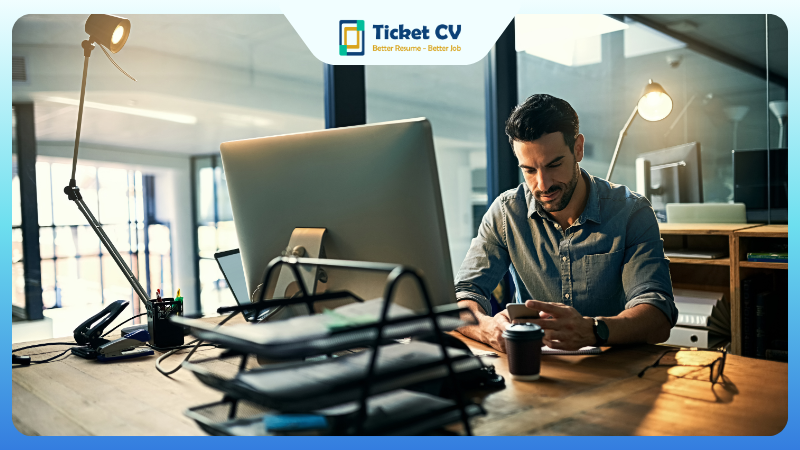
Varying Dress Codes
Different industries have varying dress codes for interviews. Some sectors, like finance or law, typically require formal business attire, while others, such as creative fields or tech companies, may have a more relaxed approach. It’s crucial to understand the specific expectations of the industry you are interviewing in. For instance, a candidate applying for a position at an investment bank should opt for traditional business attire like a suit and tie rather than jeans.
Researching the company’s dress code is essential before deciding on interview attire. By checking the company’s website or social media pages, candidates can often gain insight into what current employees wear to work. Reaching out to current employees or alumni of the organization can provide valuable information about appropriate interview attire.
First Impressions Matter
First impressions are heavily influenced by attire, with research suggesting that individuals form opinions within seconds of meeting someone based on their appearance. While some companies may adopt a casual approach to dress code in day-to-day operations, it is generally recommended to err on the side of caution when dressing for an interview.
Business Casual vs. Formal Interview Attire
Different Expectations
Understanding the difference between business casual and formal attire is crucial. In a business casual setting, candidates can opt for casual dress such as slacks or chinos with a collared shirt, while in a formal interview, a suit and tie are typically expected. Employers often have specific expectations regarding attire based on the workplace culture and the nature of the job.
In modern companies that embrace more relaxed atmospheres, candidates might find themselves in a position where they need to choose between business casual and formal interview attire. Researching the company’s style beforehand can provide insight into what would be deemed appropriate for an interview.
Making the Right Impression
Understanding whether jeans are appropriate for an interview requires careful consideration of both business norms and individual company culture. While some employers may be open to seeing candidates in well-fitted dark jeans as part of a business casual ensemble, others may expect traditional office wear even during interviews.
Candidates should consider how their choice of clothing reflects on them professionally when preparing for an interview. Opting for tailored trousers instead of jeans could convey respect for traditional workplace norms and demonstrate attention to detail. On the other hand, if interviewing at a tech startup known for its laid-back environment, clean dark-wash jeans paired with polished shoes might align better with their modern company culture.
The Role of Company Culture in Choosing Interview Outfits
Reflecting Company Values
It’s crucial to consider the role of company culture. Every company has its unique values and expectationsWhich can greatly influence what is considered appropriate for an interview. For instance, a creative agency may encourage more casual and trendy attire, while a law firm might expect a more formal and conservative look. By understanding the company’s values, candidates can align their outfit choices with what the organization deems suitable.
Understanding the culture of a company is essential for making a positive impression during an interview. When candidates dress in alignment with the company’s values, they demonstrate their ability to assimilate into the existing work environment seamlessly. This not only showcases respect for the organization but also indicates that they are capable of adapting to different professional settings as needed.
Adapting Attire Choices
Adapting to the company’s culture can significantly enhance one’s chances of creating an appropriate interview outfit. For example, if a candidate is interviewing at a tech startup known for its laid-back atmosphere, opting for well-fitted jeans paired with a smart blouse or collared shirt could strike just the right balance between professionalism and cultural fit. On the other hand, if interviewing at a traditional corporate setting where formal business attire is standard practice, choosing tailored trousers or skirts would be more suitable.
Moreover, by researching and understanding how employees typically dress within an organization before attending an interview there allows candidates to tailor their outfits accordingly. Whether through online research or personal connections within the industry, gaining insights into typical office wear can help candidates make informed decisions about their own interview attire based on specific cultural cues from that workplace.
Pros and Cons of Wearing Jeans to Interviews
Casual and Approachable Image
Wearing jeans to an interview can convey a casual and approachable image. For certain industries or company cultures, this may be seen as a positive attribute. It suggests that the candidate is down-to-earth, easy to work with, and adaptable. In creative fields such as graphic design or advertising, where individuality is valued, jeans might be more acceptable.
In some cases, wearing jeans could help candidates feel more comfortable and confident during the interview process. This comfort can translate into better communication with the interviewer and a more relaxed demeanor overall.
Perceived Unprofessionalism
However, in many traditional corporate settings or formal industries like finance or law, wearing jeans to an interview may be perceived as unprofessional. The attire might signal a lack of respect for the seriousness of the occasion or even indicate that the candidate doesn’t understand professional norms.
Certain companies have strict dress codes that prohibit employees from wearing denim at any time; thus showing up in jeans for an interview could send a negative message about one’s judgment or willingness to adhere to company policies.
It’s crucial for job seekers to consider these potential perceptions when deciding on their interview attire. Understanding how they want to present themselves and what kind of impression they want to make will greatly influence their choice of clothing.
When Jeans Are Acceptable for Interviews
Researching Company Culture
Researching a company’s culture is crucial in determining whether jeans are appropriate for an interview. Startups and creative industries often embrace a more casual dress code, making jeans acceptable interview attire. Understanding the organization’s values, work environment, and typical employee attire can provide valuable insight into what is considered appropriate.
When considering wearing jeans to an interview, it’s essential to gather information about the company’s culture through various sources. This could involve visiting the company’s website and social media platforms to observe how employees are dressed in their photos. Reaching out to current or former employees for insights on the dress code can provide valuable firsthand information.
Understanding when jeans are acceptable involves considering not only the industry but also the specific company you’re interviewing with. For example, while some tech startups may encourage a laid-back atmosphere where jeans are widely accepted, other companies within the same industry might maintain a more traditional business dress code.
Making an Informed Decision
Making an informed decision about wearing jeans to an interview requires careful consideration of multiple factors. It’s important to evaluate both the industry norms and each individual company’s culture before deciding on interview attire.
In some cases, even within industries known for their casual approach to dressing such as technology or creative fields, there may be variations between different companies regarding what constitutes appropriate attire for interviews. By understanding these nuances and doing thorough research beforehand, candidates can make well-informed decisions about whether jeans would be suitable for their upcoming interviews.
Before choosing jeans as part of your interview outfit, consider alternative options that strike a balance between professionalism and comfort if you’re uncertain about whether they would be deemed appropriate by your potential employer.
Dressing for Success: Beyond the Jeans Dilemma
Company’s Image
Tailoring jeans to match the company’s image is crucial. For a creative or casual workplace, dark wash denim might be acceptable. However, for corporate or formal settings, it’s best to opt for khakis, dress pants, or a pant suit.
When aiming for a professional look in an interview setting, consider the industry and company culture. A finance corporation may require traditional business attire, while a tech startup could embrace more relaxed clothing choices.
It’s essential to research the company beforehand and understand its dress code norms. This demonstrates respect for their culture and shows that you’re serious about fitting into their environment.
Accessories and Grooming
In addition to your choice of pants, remember that accessories and grooming play a significant role in overall presentation. Regardless of whether you choose jeans or dress pants, ensure that your shoes are clean and well-maintained.
For women wearing jeans in an interview setting, pairing them with a smart blouse or blazer can elevate the outfit to suit a professional environment better. Men can also enhance their appearance by adding subtle accessories such as ties or watches.
Grooming is equally important; make sure hair is neat and tidy, nails are clean and trimmed (for both men and women), and any facial hair is well-groomed if applicable. These details contribute significantly to creating an overall polished look regardless of what type of bottoms you choose to wear.
Outfit Confidence
Projecting confidence through your outfit is key to interview success. While jeans can sometimes be appropriate depending on the workplace culture, it’s vital that you feel confident in whatever outfit you select.
Confidence exudes competence – when candidates present themselves confidently during interviews; they often leave lasting impressions on employers regardless of their attire choice. Therefore, choosing an outfit that makes you feel self-assured will likely improve how others perceive you during the interview process.
Remember that projecting confidence doesn’t solely rely on what clothes you wear but also how comfortable and authentic you feel in them.
Gender-Neutral Guidelines for Interview Attire
Promoting Equality
Gender-neutral guidelines for interview attire are crucial in promoting equality in the workplace. By setting similar dress code standards for both men and women, companies create a level playing field during the interview process. This approach emphasizes that professionalism is paramount, regardless of gender, and helps to eliminate biases based on appearance.
Gender-neutral interview attire expectations ensure that all candidates are evaluated primarily on their qualifications and skills rather than their clothing choices. For instance, specifying business professional or business casual as the required dress code allows individuals to express their personal style within these parameters while maintaining a polished appearance. This practice encourages diversity and inclusivity within the workforce.
Professionalism Over Gender-Specific Attire
Focusing on professionalism over gender-specific attire is essential when considering appropriate interview attire. Instead of adhering to traditional stereotypes about what men or women should wear, candidates can focus on presenting themselves in a manner that exudes confidence and competence. Whether it’s wearing tailored slacks or knee-length skirts with blazers, emphasizing professional presentation transcends gender-based fashion norms.
Ensuring Comfort and Confidence in Your Interview Outfit
Impact of Comfort on Confidence
Feeling comfortable in your interview outfit is crucial for exuding confidence during interviews. When you’re at ease in what you’re wearing, it positively impacts your overall demeanor. A well-fitting attire not only enhances your physical appearance but also contributes to a sense of assurance. It’s essential to prioritize comfort as it directly influences how confident and composed you appear to the interviewer.
Choosing an outfit that aligns with your personal style while meeting professional standards can significantly boost your confidence level. For instance, opting for a tailored suit or a polished dress that fits comfortably can help you feel more self-assured during the interview process. This ensures that you present yourself in a way that reflects both professionalism and personal comfort.
Balancing Comfort and Professionalism

Prioritizing comfort while maintaining professionalism is key when selecting an appropriate interviewing ensemble. This balance can be achieved by choosing clothing items made from high-quality, breathable fabrics that offer both style and ease of movement. For example, pairing a well-fitted blazer with tailored trousers or a knee-length skirt allows for freedom of movement without compromising on sophistication.
Selecting solid colors such as navy blue, charcoal gray, or black for your interview attire can also contribute to creating a polished look while ensuring comfort. These colors are versatile and timeless, making them suitable choices for various job roles across different industries. Incorporating subtle accessories like minimalistic jewelry or a classic watch complements the outfit without detracting from its overall comfort factor.
Avoiding Common Mistakes with Jeans at Interviews
Avoiding Overly Distressed or Embellished Jeans
When considering jeans for an interview, it’s important to steer clear of overly distressed or embellished pairs. Rips, tears, and excessive fading can give off a casual and unprofessional vibe. Opt for jeans with minimal distressing or none at all. This ensures that the focus remains on your qualifications rather than your attire. Remember, the goal is to present yourself as polished and put-together.
Pairing jeans with appropriate footwear plays a crucial role in enhancing the overall look. A clean pair of dress shoes or loafers elevates the outfit while maintaining a professional appearance. On the other hand, sneakers or flip-flops may detract from the formality required for an interview setting.
Mindful Fit and Cleanliness
Being mindful of fit and cleanliness when wearing jeans to interviews is paramount. Choose a pair that fits well without being too tight or too loose; aim for a tailored yet comfortable fit. Ensure that your jeans are clean and free from wrinkles before heading to your interview.
In terms of fit, avoid excessively skinny jeans as they might come across as too casual for most interviews. Instead, opt for straight-leg or slim-fit styles which offer a more polished appearance while still being comfortable.
Make sure there are no visible stains or signs of wear on your jeans. Presenting yourself in well-maintained attire demonstrates attention to detail – a quality highly valued by potential employers.
Closing Thoughts
The choice of attire for an interview holds significant weight in shaping the first impression. While jeans may be acceptable in certain scenarios, it’s crucial to prioritize professionalism and company culture when making outfit decisions. Understanding the nuances between business casual and formal attire, considering gender-neutral guidelines, and avoiding common mistakes with jeans can all contribute to a polished interview look. Beyond the jeans dilemma, individuals should focus on ensuring comfort and confidence in their outfit, ultimately projecting competence and suitability for the role.
In a competitive job market, every detail matters. As individuals navigate the complexities of interview attire, they should remember that clothing is a form of non-verbal communication. By carefully considering the company’s culture and industry norms, candidates can present themselves as thoughtful and well-prepared professionals. The right outfit can bolster confidence and leave a lasting positive impression.
Frequently Asked Questions

Are jeans considered appropriate for an interview?
Jeans are generally not recommended for interviews, especially formal ones. However, in certain creative or casual work environments, well-fitted and dark-colored jeans may be acceptable.
What is the significance of understanding interview dress codes?
Understanding interview dress codes helps candidates make a favorable impression by dressing appropriately. It showcases respect for the company and its culture while also reflecting professionalism and preparedness.
When are jeans considered acceptable attire for interviews?
In industries with a more relaxed dress code, such as creative fields or tech startups, wearing high-quality, dark-colored jeans paired with a professional top and shoes might be deemed suitable.
How can one ensure comfort and confidence in their interview outfit?
Candidates should choose attire that fits well and makes them feel confident. Prior to the interview day, they should try on their outfit to ensure it is comfortable and allows them to move freely.
Why should individuals avoid common mistakes when wearing jeans to interviews?
Avoiding common jean-related mistakes demonstrates attention to detail and respect for the opportunity. By adhering to appropriate guidelines regarding denim wear at interviews, candidates present themselves professionally.






